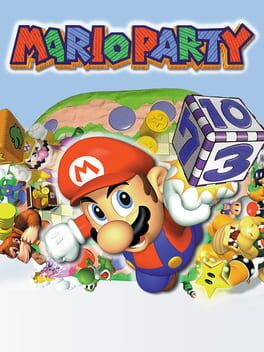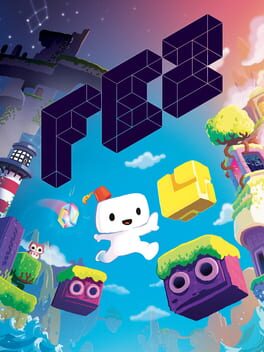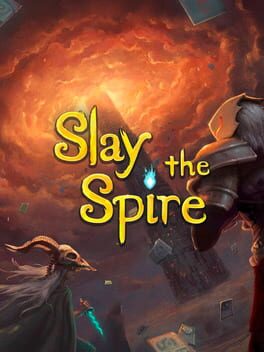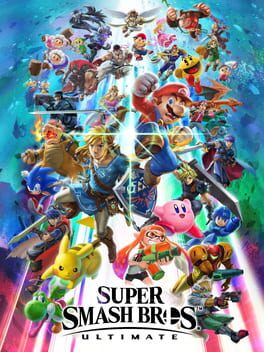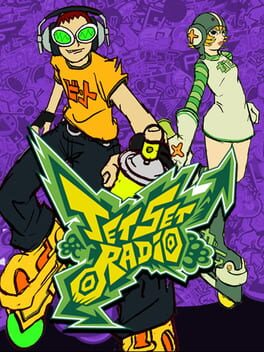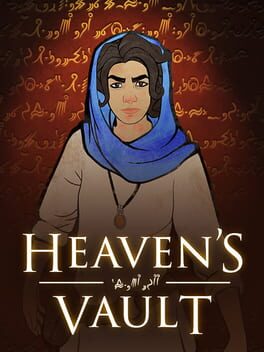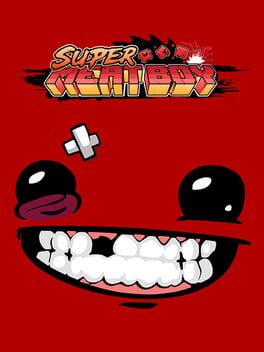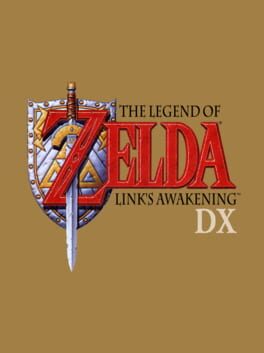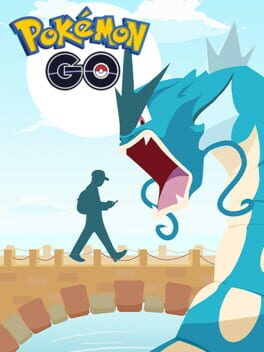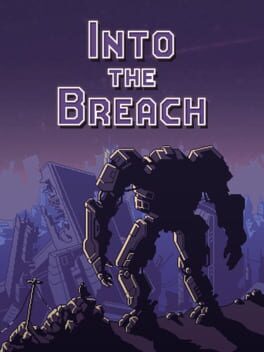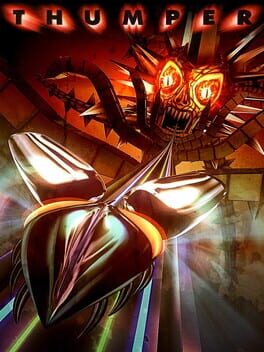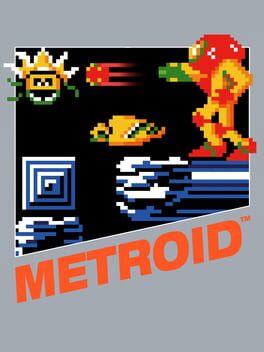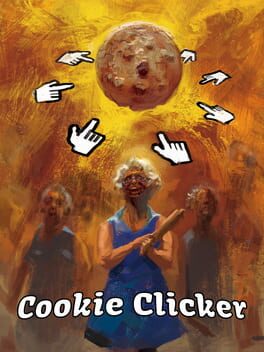AutumnLily
1998
2012
I think the game is likely better than my memory of it gives credit and that I likely entered it with the wrong mindset. That said, considering how uuuh not-great the creator is, I'm pretty unmotivated to give this a second chance.
Found the map pretty frustratingly designed and hard to gain use out of without just memorising half the routes anyways, which I think is something that would bug me even were I to like the game more second time round.
Found the map pretty frustratingly designed and hard to gain use out of without just memorising half the routes anyways, which I think is something that would bug me even were I to like the game more second time round.
2019
Bounced off this a reasonable amount; probably played about 10-15 hours over the course of the past week or so, and I anticipate playing it more once I'm able to travel again (it seems good for passing time during train/plane journeys) but I can't say I'm compelled enough to spend time on this whilst stuck at home.
There are a few things holding this back for me. I felt like a lot of the time I was having to choose between either engaging in a bunch of busywork or risking future feelbads (trying to balance out of the upsides/downsides of the myriad possible map routes, setting up turn/action-counting relics for the next fight, triple-checking the math on a really complicated turn before committing to either offense or defense). Removing cards (and to an extent upgrading cards) feels so much better than the other options presented that it's hard not to bias towards them in ways that make some choices straightforward/boring (I'd love to have seen one of the four core characters treat this part of the game mechanically differently somehow). Defect and Watcher, based on my initial experiences, felt dramatically more interesting than the other two characters. The game's aesthetic was kind of bland and unmemorable for me (though completely fine).
The biggest problem for me personally is that the game was just very easy, though. Across my first six runs I came close to dying once? I really wish there was a way to skip through ascensions, such that I could challenge ascension 5 even though I've only cleared ascension 1; make ascension 5 even harder for people who want to do things this way to discourage this behaviour if you want, but at least give me the option rather than making me grind for however many hours to get to the point where I feel like I am at risk of losing. I can get around this by just exclusively playing Custom Game mode, but not being able to engage with the main mode sounds unsatisfying enough to me that I'd rather just take a break from the game.
Anyways, the game is a perfectly solid attempt at mixing roguelite and deckbuilder. My rating is perhaps a tad harsh as I recognise the game will appeal to me more once I've unlocked higher ascensions, and that the gameplay with both Defect and Watcher is generally fun and has some great high-points. I do intend to play the game more at some point down the road with all this in mind, but my early experience has been soured a bit and I'd rather just do something else for now.
There are a few things holding this back for me. I felt like a lot of the time I was having to choose between either engaging in a bunch of busywork or risking future feelbads (trying to balance out of the upsides/downsides of the myriad possible map routes, setting up turn/action-counting relics for the next fight, triple-checking the math on a really complicated turn before committing to either offense or defense). Removing cards (and to an extent upgrading cards) feels so much better than the other options presented that it's hard not to bias towards them in ways that make some choices straightforward/boring (I'd love to have seen one of the four core characters treat this part of the game mechanically differently somehow). Defect and Watcher, based on my initial experiences, felt dramatically more interesting than the other two characters. The game's aesthetic was kind of bland and unmemorable for me (though completely fine).
The biggest problem for me personally is that the game was just very easy, though. Across my first six runs I came close to dying once? I really wish there was a way to skip through ascensions, such that I could challenge ascension 5 even though I've only cleared ascension 1; make ascension 5 even harder for people who want to do things this way to discourage this behaviour if you want, but at least give me the option rather than making me grind for however many hours to get to the point where I feel like I am at risk of losing. I can get around this by just exclusively playing Custom Game mode, but not being able to engage with the main mode sounds unsatisfying enough to me that I'd rather just take a break from the game.
Anyways, the game is a perfectly solid attempt at mixing roguelite and deckbuilder. My rating is perhaps a tad harsh as I recognise the game will appeal to me more once I've unlocked higher ascensions, and that the gameplay with both Defect and Watcher is generally fun and has some great high-points. I do intend to play the game more at some point down the road with all this in mind, but my early experience has been soured a bit and I'd rather just do something else for now.
2012
2019
Heaven's Vault's high-points soar. These moments largely revolve around the quiet wonder involved in piecing together the past of the Nebula, in finding some old item or deciphering some piece of text, gaining some understanding of how things were. As someone who is not into archaeology this game is very good at letting you into that world and letting you understand the appeal, and much of the game is chasing these moments of revelation, however large or small. The translation mechanic is kind of perfect in this context for how it lets you see through Aliya's eyes, lets you directly engage with both seeking understanding whilst also still having a curtain of mystery shrouding things, doubt surrounding the discoveries you make.
I loved both how the game felt like it gave me a large amount of agency with the decisions I wanted to make, these decisions that have very tangible effects on the world you're in and people you encounter, and also with how nonlinear the game is at points. Both this, and the potential for different possible translations to warp your perspective on the past, give you the feeling that the experience you're having is a fairly unique one from what other players might be going through. In addition to all of this the lore of the game, and some of the implications of occurrences late into it, is fascinating, and I love the art-style used for the characters and how it emphasises this feeling of transience, that you too shall become a piece of the past.
Despite all of this there are various mechanical issues with the game for me that are almost certainly going to prevent me from engaging with New Game+ (as interesting as the game manages to make that concept). Chiefly, the sailing sections that are initially beautiful soon become tedious and very repetitive later in the game as they grow in length whilst you hunt new sites to explore. I was also very frustrated with the two characters you can trade items to for information who will only do one or two things for you per visit before you have to leave the moon and then return to initiate another exchange; at its worst the game can devolve into a bunch of busywork, and these trade sequences are a particularly grating example of this.
All the other flaws are much more minor things that still nudged me out of the experience periodically; there's some awkward sequencing with dialogue that will crop up sometimes either as a bug or due to the game struggling a bit with its nonlinear nature, some of the dialogue in any individual conversation can end up coming to you in a non-sensical sequence depending on choices you make of what to say, the controls and display both become pretty unpleasant during particularly long translations, action indicators disappearing when you're talking with Six makes it hard to ever actually walk-and-talk at the same time in case you miss something you can do. I could probably continue this list for a little bit longer of things that just make the experience feel unpolished.
I never thought I would get so invested in a game about archaeology though, and there are some wonderous moments when the game hits its stride so I will still remember the game largely-fondly even if I can't imagine ever returning to it.
I loved both how the game felt like it gave me a large amount of agency with the decisions I wanted to make, these decisions that have very tangible effects on the world you're in and people you encounter, and also with how nonlinear the game is at points. Both this, and the potential for different possible translations to warp your perspective on the past, give you the feeling that the experience you're having is a fairly unique one from what other players might be going through. In addition to all of this the lore of the game, and some of the implications of occurrences late into it, is fascinating, and I love the art-style used for the characters and how it emphasises this feeling of transience, that you too shall become a piece of the past.
Despite all of this there are various mechanical issues with the game for me that are almost certainly going to prevent me from engaging with New Game+ (as interesting as the game manages to make that concept). Chiefly, the sailing sections that are initially beautiful soon become tedious and very repetitive later in the game as they grow in length whilst you hunt new sites to explore. I was also very frustrated with the two characters you can trade items to for information who will only do one or two things for you per visit before you have to leave the moon and then return to initiate another exchange; at its worst the game can devolve into a bunch of busywork, and these trade sequences are a particularly grating example of this.
All the other flaws are much more minor things that still nudged me out of the experience periodically; there's some awkward sequencing with dialogue that will crop up sometimes either as a bug or due to the game struggling a bit with its nonlinear nature, some of the dialogue in any individual conversation can end up coming to you in a non-sensical sequence depending on choices you make of what to say, the controls and display both become pretty unpleasant during particularly long translations, action indicators disappearing when you're talking with Six makes it hard to ever actually walk-and-talk at the same time in case you miss something you can do. I could probably continue this list for a little bit longer of things that just make the experience feel unpolished.
I never thought I would get so invested in a game about archaeology though, and there are some wonderous moments when the game hits its stride so I will still remember the game largely-fondly even if I can't imagine ever returning to it.
1986
Clearly archaic, most notably in how obtuse a lot of the progression and secrets are. The worst part is definitely everything associated with the bombs, hidden doorways you need to blow open with no indication as to the points you're meant to lay this somewhat scarce resource in front of. That kind of design mentality spreads to a lot of different places outside of just the bomb mechanic, making the game somewhere between tedious and frustrating to progress in without outside advice; I get that at the time this would make the game seem more mysterious and expansive, but this style of design has largely disappeared for a reason. I also hate how much the game encourages grinding due to not fully restoring your health when you respawn and requiring you to collect large quantities of money for progression-critical items.
I enjoyed this game quite a bit more than my score for it indicates (maybe a 3/5 or thereabouts), but only thanks to using an overworld map that listed where every character, dungeon and bomb/fire secret was, a guide for the last few dungeons, and save states to generate money with the gambling minigame; I'm fairly sure I would have abandoned The Legend of Zelda in frustration well before the end without these things. I'm glad I played the game, it's an important piece of game history, even now it still retains a sense of wonder to its exploration at times, and it's easy to see how it really helped develop the language of video games, but I really can't recommend people actually play the game outside of anything other than historical curiosity.
I enjoyed this game quite a bit more than my score for it indicates (maybe a 3/5 or thereabouts), but only thanks to using an overworld map that listed where every character, dungeon and bomb/fire secret was, a guide for the last few dungeons, and save states to generate money with the gambling minigame; I'm fairly sure I would have abandoned The Legend of Zelda in frustration well before the end without these things. I'm glad I played the game, it's an important piece of game history, even now it still retains a sense of wonder to its exploration at times, and it's easy to see how it really helped develop the language of video games, but I really can't recommend people actually play the game outside of anything other than historical curiosity.
I loved this game so much when I was a teenager. Revisiting it all these years later I found it still largely enjoyable, but it has not aged perfectly. There's still some of the frustrating cryptic progression-gating from the NES original here that forced me to look at a guide a couple times for where on Hylia I was meant to be heading next, whilst the story is a barely-glorified fetch-quest that gave me very little reason to care about its characters (though the opening, breaking into the castle in the pouring rain, still gives me chills).
The dungeons blurred together at points due to the extent to which I felt funnelled from one to the next without that much of a breather, something later Zeldas would avoid via both actual-plot and more substantial side-quests, but they're pretty fun in general. Skull Woods and Thieves' Town were my personal favourite dungeons, with the structure of Skull Woods somehow feeling innovative even almost three decades later, and the boss fights throughout the game are consistently great too.
Overall I still like A Link to the Past, and I certainly respect its historical importance and how huge of a leap forward from the NES original it is, but I think nowadays I see it primarily as a solid foundation that later, sometimes better, entries in the series would build more interesting things on top of.
The dungeons blurred together at points due to the extent to which I felt funnelled from one to the next without that much of a breather, something later Zeldas would avoid via both actual-plot and more substantial side-quests, but they're pretty fun in general. Skull Woods and Thieves' Town were my personal favourite dungeons, with the structure of Skull Woods somehow feeling innovative even almost three decades later, and the boss fights throughout the game are consistently great too.
Overall I still like A Link to the Past, and I certainly respect its historical importance and how huge of a leap forward from the NES original it is, but I think nowadays I see it primarily as a solid foundation that later, sometimes better, entries in the series would build more interesting things on top of.
2010
Whilst on a technical level this is obviously a step backwards from A Link to the Past (with a bunch of awkward consequences of these technical limitations), and there's certainly a bit too much compulsory backtracking for my taste, this game pushes forward Zelda on multiple levels that lead to it being a more rewarding experience for me than the earlier entries in the series.
Most notably this game made me actually care about its characters and world, something none of the Zelda games released prior to it could accomplish. Whilst the story here is simple it is fairly emotionally compelling for what it is (Marin seemingly trying to wake up the Wind Fish in particular is a fascinating moment), the world you explore is extremely charming, and the game's bizarre, psychedelic presentation fits its storytelling perfectly.
Also notable, this is the first Zelda game to start pushing its puzzle-solving aspect. In this regard the seventh dungeon here, Eagle's Tower, is at this point in the series my favourite dungeon so far as it is the first one that actually forced me to really think making completing it all the more satisfying.
Most notably this game made me actually care about its characters and world, something none of the Zelda games released prior to it could accomplish. Whilst the story here is simple it is fairly emotionally compelling for what it is (Marin seemingly trying to wake up the Wind Fish in particular is a fascinating moment), the world you explore is extremely charming, and the game's bizarre, psychedelic presentation fits its storytelling perfectly.
Also notable, this is the first Zelda game to start pushing its puzzle-solving aspect. In this regard the seventh dungeon here, Eagle's Tower, is at this point in the series my favourite dungeon so far as it is the first one that actually forced me to really think making completing it all the more satisfying.
2016
2018
2016
Thumper's moniker of "rhythm violence game" fits really well; I can't remember the last time I played a game that is quite so violent towards its players. A barrage of lights and sound, hurtling obstacles towards you only to then hurl you around even as you successfully navigate them. The game really makes you feel what's happening every moment of the way; it is exhilarating, exhausting and intensely visceral.
Thumper gets very difficult as it proceeds, which I can imagine putting off a number of people who are otherwise very into the aesthetic. Personally I found the increasingly harsh difficulty perfectly suited the game's feeling of being a descent into some hellish void, and the way the game pushed me to tackle increasingly harder and harder patterns leads to beating those final levels feeling very rewarding. The things the game trains you to eventually be capable of are kind of absurd.
I would like to try this out in VR some day.
Thumper gets very difficult as it proceeds, which I can imagine putting off a number of people who are otherwise very into the aesthetic. Personally I found the increasingly harsh difficulty perfectly suited the game's feeling of being a descent into some hellish void, and the way the game pushed me to tackle increasingly harder and harder patterns leads to beating those final levels feeling very rewarding. The things the game trains you to eventually be capable of are kind of absurd.
I would like to try this out in VR some day.
1986
The lack of a map, in a world where every corridor looks identical and extends eternally, would probably be enough of a killer on its own. The frequent horrible lag, how restricted your shooting capabilities are, and the seeming expectation for you to just tank essentially unavoidable damage, all just made things worse.
Very quickly decided I want to do anything else with my time. Clearly remarkable for its time, extremely influential, but also just kind of bad.
Very quickly decided I want to do anything else with my time. Clearly remarkable for its time, extremely influential, but also just kind of bad.
2013
The clicker genre is one that reduces games to the worst parts of modern game design, turning them into addictive, manipulative Skinner boxes. Whilst I don't think it's impossible for entries in the genre to transcend this in some manner, I have such a dislike for and distrust of the mechanisms that sit at the core of these games that I think it would be safest to avoid the genre altogether.
Cookie Clicker, as the most well-known example of this, becomes the poster-child for this.
Cookie Clicker, as the most well-known example of this, becomes the poster-child for this.
